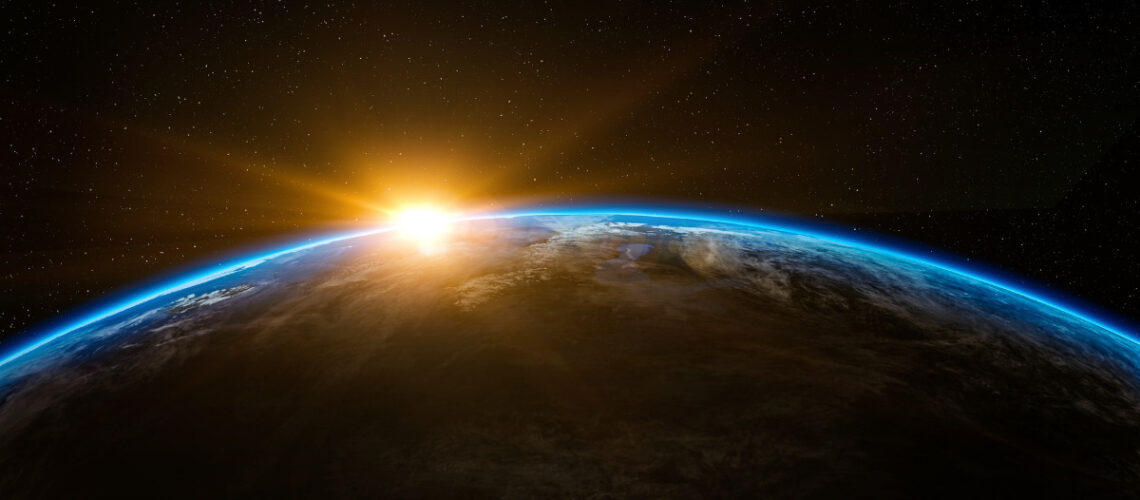In the quest to unravel the mysteries of the universe, humanity has always sought to push the boundaries of knowledge and explore the farthest reaches of space. Today, as we stand on the cusp of the third decade of the 21st century, artificial intelligence (AI) is playing a pivotal role in revolutionizing the field of astrophysics. In this blog post, we will delve into the fascinating ways AI is advancing our understanding of the cosmos and propelling space exploration to new frontiers.
AI and Data Analysis in Astrophysics
One of the most significant contributions of AI to astrophysics lies in its ability to handle vast amounts of data with unprecedented speed and precision. Modern observatories and space telescopes routinely capture terabytes of data in a single observation. Analyzing this data manually would be a herculean task, but AI algorithms excel in sifting through this data to identify celestial objects, patterns, and anomalies.
AI in Image Recognition
AI-driven image recognition algorithms have proven invaluable in astrophysics. They can quickly identify and classify celestial objects such as stars, galaxies, and asteroids in astronomical images. For instance, the Large Synoptic Survey Telescope (LSST), which is set to come online soon, will generate an astronomical dataset of unprecedented size—approximately 20 terabytes per night. AI will be instrumental in managing and processing this data deluge.
The Hunt for Exoplanets
The search for exoplanets—planets outside our solar system—has captured the imagination of scientists and the public alike. AI has become a game-changer in this field, making it possible to identify exoplanets with greater precision and efficiency.
Transit Method and AI
The transit method, which involves detecting a planet passing in front of its host star, is a commonly used technique for identifying exoplanets. AI algorithms can detect these subtle dips in a star’s brightness, making it easier to discover exoplanets, including those that are Earth-like and potentially habitable.
AI and Kepler-90
An excellent example of AI’s impact in exoplanet discovery is the case of Kepler-90, a distant star system. NASA’s Kepler Space Telescope identified eight planets orbiting Kepler-90, but it was an AI algorithm developed by Google researchers that discovered an additional exoplanet, Kepler-90i, bringing the total to eight. This breakthrough showcases how AI can enhance our understanding of exoplanetary systems.
Cosmic Phenomena and AI
Astrophysics encompasses the study of various cosmic phenomena, from supernovae to black holes. AI is instrumental in unraveling the mysteries of these phenomena.
Supernova Classification
Supernovae are colossal stellar explosions that mark the end of a star’s life cycle. The classification of supernovae into different types helps us understand the processes that lead to their formation. AI algorithms, trained on vast datasets of supernova observations, can classify supernovae accurately and quickly, providing insights into the dynamics of the universe.
Black Hole Investigations
Black holes, enigmatic regions of space where gravity is so strong that nothing, not even light, can escape, continue to captivate scientists. AI is aiding in the discovery and study of black holes by analyzing the data collected from radio telescopes and gravitational wave detectors. It helps in identifying and tracking black hole mergers and their resulting gravitational waves.
Enhancing Spacecraft Operations
AI is not limited to Earth-based observations; it is also making space exploration more efficient and autonomous.
Autonomous Navigation
Spacecraft operating in distant parts of the solar system, such as NASA’s Juno mission to Jupiter, rely on AI for autonomous navigation. These AI systems can make real-time decisions, adjust trajectories, and avoid obstacles, allowing missions to be conducted more safely and effectively.
AI and the Future of Space Exploration
The role of AI in astrophysics and space exploration is continually evolving, and the future holds exciting possibilities.
Exoplanet Characterization
As we discover more exoplanets, the focus will shift towards characterizing their atmospheres and potential habitability. AI will play a crucial role in interpreting spectroscopic data and identifying biomarkers that could indicate the presence of life on distant planets.
Deep Space Missions
AI will enable more ambitious deep space missions, such as the upcoming James Webb Space Telescope (JWST). The JWST is equipped with AI systems that will help it autonomously adjust its instruments and optimize observations, ensuring that it achieves its scientific goals efficiently.
Artifical Intelligence and Astrophysics
While AI is revolutionizing astrophysics and space exploration, it also raises important challenges and ethical considerations. The responsible use of AI in space research necessitates careful consideration of issues such as data bias, privacy, and the potential for autonomous systems to make critical decisions.
Artificial intelligence is undeniably transforming the field of astrophysics and space exploration. It enables us to handle vast amounts of data, discover exoplanets, unravel cosmic phenomena, and enhance spacecraft operations. As AI continues to evolve, it holds the promise of unlocking new secrets of the cosmos and expanding our understanding of the universe, one algorithm at a time. The synergy between AI and astrophysics is a testament to human ingenuity and the relentless pursuit of knowledge beyond the stars.

